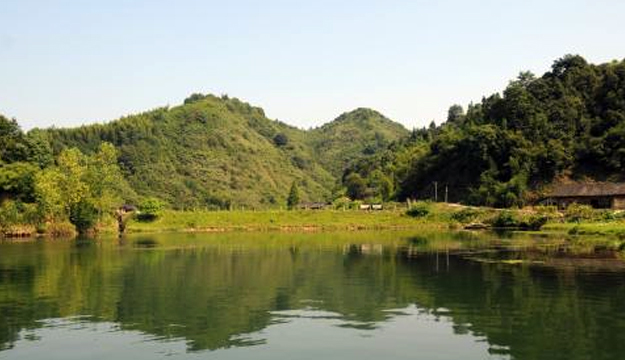Taoyuan MEC

The Taoyuan MEC will develop a model eco-community around the Yuan River and surrounding wetland area in Lingjin Tan Township, Taoyuan County, Hunan Province, China. The Yuan River is a lush zone of biodiversity, the natural habitat of thousands of native plants, herbs and animals, including the Qiusha Duck, a class-one endangered species. Rapid economic development in the area has imperiled the future of this rich wetland and forest. The rural community members face impoverished conditions, lack of education, poor healthcare and an ever-pressing need to keep up with modernization.Future Generations China’s goal is to preserve the diverse and unique natural habitat of the Yuan River while at the same time empower the surrounding rural community to become economically viable through environmentally conscious and sustainable means.
We will proceed by firstly establishing the Yuan River National Wetland Park, which will bring state-funded protection to the Yuan River wetland. In conjunction with this, the Taoyuan MEC will address the economic and social welfare of the surrounding community through:
- 1) formation of a chicken farming cooperative,
- 2) initiating an ecotourism program
- 3) establishment of a community center offering healthcare, environmental and life skills trainings and 4) rebuilding and refurbishing education and healthcare facilities.
Taoyuan MEC: A Model For The Future Future Generations China is dedicated to creating long-term sustainability in rural China and the Taoyuan MEC is only one of many steps in this direction. By including community members at every stage of the Taoyuan MEC’s program design and implementation, we hope to foster a sense of ownership and establish a pool of talent and resources that can be harnessed by the community for many future projects; a self-sustaining, proven way to get results. Our initiatives, such as the Chicken Farming Cooperative, are designed to be self-replicating and self-expanding so that the environmental and economic impact of our MEC program can ripple across the region. In short, the Taoyuan MEC is designed to serve as a model that other local communities and beyond can use to develop in positive and sustainable ways. A successful Taoyuan MEC will allow Future Generations China to gain important experience in natural resource protection and community development and create more ambitious and effective MEC projects in the future. We hope that the MEC program can eventually reach all rural areas in China and prove that economically viable and sustainable growth can be accomplished.

Taoyuan County is located in the northwestern portion of Hunan Province at 28°55′N 111°29′E. It is 118 km long and 75 km wide. Its total area is 4441.22 km2, which is the fourth largest in Hunan province. The arable land is 895 km2, which is the largest in Hunan province. The agricultural landscape consists of 13.4% alluvial plains by the Yuan River, 49.3% hillock and 36.0% hills and mountains. Agricultural products of Taoyuan County include rice, wheat, edible oils, sesame seeds, peanuts, cotton and tobacco. Manufactured goods produced include machinery, textiles, chemicals, wood products, and leather goods. Local mines extract gold, silver, iron ore and diamonds. The Yuan River wetlands and forest have been seriously threatened by rapid economic development in the region. Deforestation, dam constructions and pollution have contributed to a steady decline in the ecological health of this once abundant natural habitat. The Yuan River is home to thousands of woody plants, herbs and animals, many of which are protected species. Environmental deterioration has placed all of these species in jeopardy, including the Qiushu Duck, one of the most endangered species in China. The Qiushu Duck has long used the Yuan River wetlands as its winter migration destination but its habitat has been disrupted by human activity.
